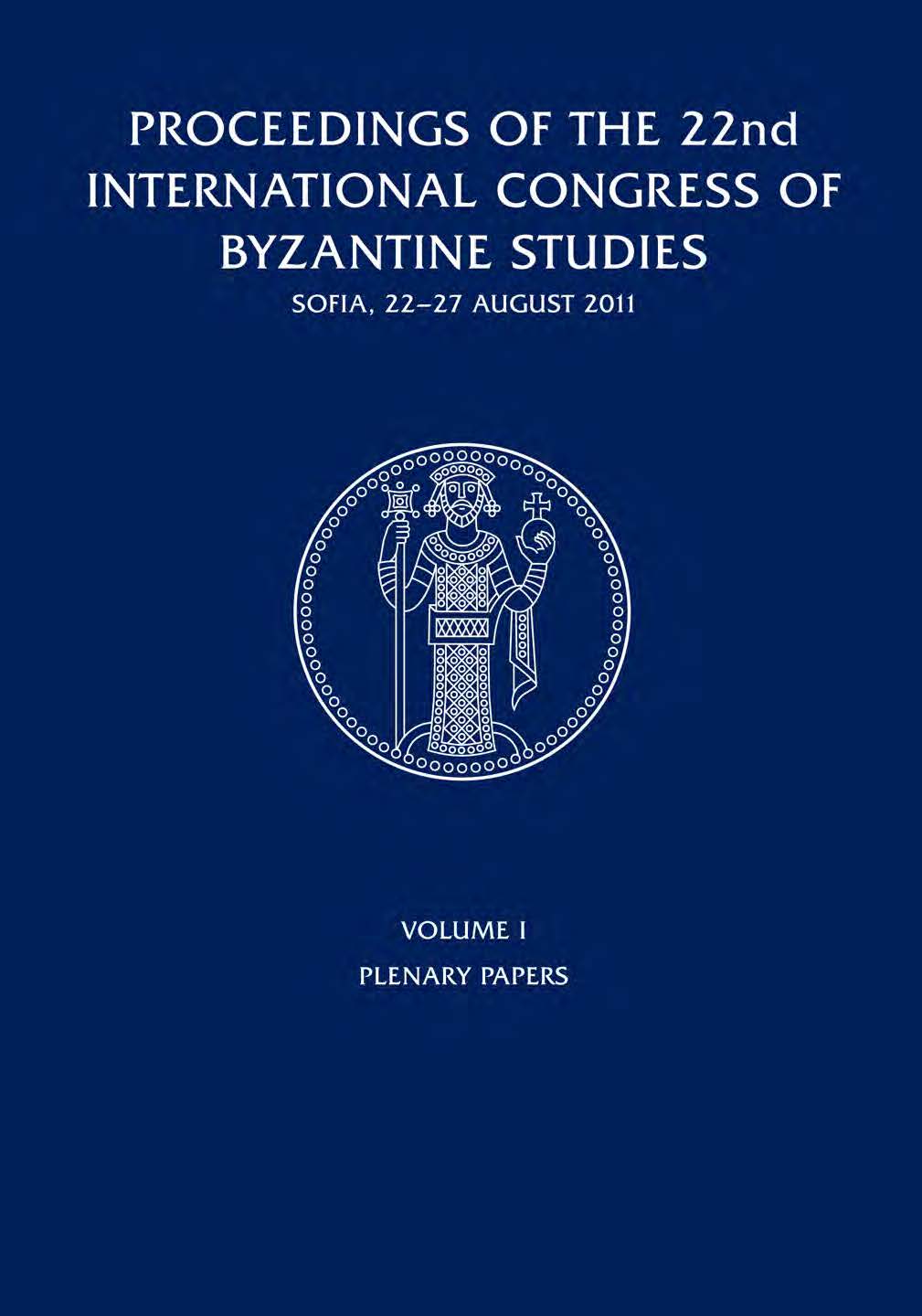
We kindly inform you that, as long as the subject affiliation of our 300.000+ articles is in progress, you might get unsufficient or no results on your third level or second level search. In this case, please broaden your search criteria.


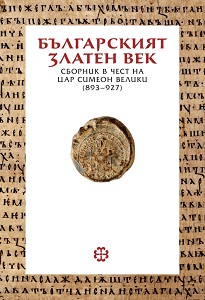



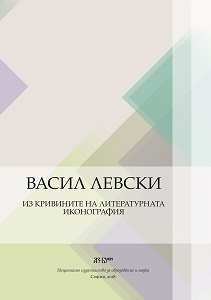
The present paper entitled “Exaltaions about Name: or, Two Contemporary Anthologies Dedicated to the Apostle and Beyond Them” comments the existence/non-existence of interest about the historical figure and life's work of Vasil Levski as a thematic field in Bulgarian poetry in the last few years. The observations, made on the basis of separate works of art, books and virtual sites, are a scientific attempt to outline the profile of current trends. These trends are combining aesthetic and socio-political attitudes towards the figure of the Bulgarian national hero.
More...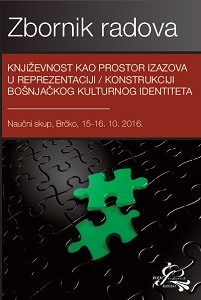
This paper analyzes the unpublished overview of Bosniak literature written by Enver Čolaković. Written during the time of the Independent State of Croatia (NDH) within the project entitled “Croatian Muslim Monographs”, this study, content wise, had to adhere to the rigid national-ideological framework of the cultural policy of that time. However, the author, insisting on his Bogomil roots, Bosnianhood and Bosnian identity of the Bosniak literature managed to achieve, to the extent it was possible, a counterbalance to the nominal Croatianhood and the officially promoted “Croatian-Muslim literary canon”. The quality of his work can be seen in the fact that Čolaković wrote not only literary-historical overview of the Bosniak literature, but also provided its general periodization, and established, according to his personal ideas and literary-esthetic predilection, anthological-chrestomathic order of writers and works of Bosniak literature.
More...
The article presents perspectives adopted in research related to linguistics studies dedicated to Polish old catholic sermons, mainly preached in 19th century. First part of this paper presents characteristics of newer linguistic research carried on basis of sermons in 19th century in comparison to sermons preached prior to this period. In second part the author discusses the perspective of research that she have adopted during own research on sermons created and published in second half of 19th century. The author considers as the most crucial reference the concept of historical and linguistic, also communicative idea developed by Stanisław Borowski that has been associated with category of communicative community as well as its bonding and shaping communicative processes. Equally important to author’s research is generic perspective, which allows to describe meaning and function of religious statement genre, such as sermon, in order to realize communicative needs of religious communicative community. Direction of research within this area is based mainly on the concept of genres created by Maria Wojtak and Bożena Witosz, especially assumptions of historical genology. Another point of view, allowing to discover interesting possibilities of analysis, brings consideration of historical, cultural and social realities that accompanied creating and functioning of preaching texts. Last part presents sample lingual analysis of hell’s image, in which it is including delineated research perspectives. The paper discusses assortment criterion in analyzing preaching texts that are believed to guarantee representativeness of research material.
More...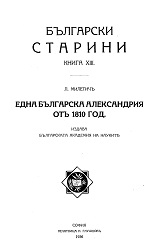
Published in 1936 by the Bulgarian Academy of Sciences (Department for History and Philology) as vol 13 of the series "Bulgarian Old Age" (БЪЛГАРСКИ СТАРИНИ, КНИГА XIII)
More...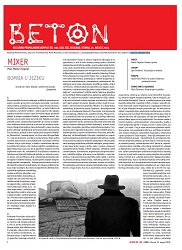
MIXER, Marko Pogačar: Bomba u jeziku; CEMENT, Igor Đorđević: Trač partija na kvadrat; ŠTRAFTA, Dejan Vasić: Može li se putem slikarstva predstaviti istina; VREME SMRTI I RAZONODE, Miloš Živanović: Dobacivanje iz publike
More...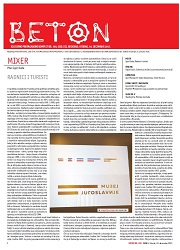
MIXER, Igor Duda: Radnici i turisti; ŠTRAFTA, Dejan Vasić: Sekvence društva u permanentnoj tranziciji; ARMATURA, Igor Marojević: Kažeš Katalonija, misliš Kosovo; VREME SMRTI I RAZONODE Ivan Antić: Dr Feelflood, Vladimir Milojković: Čega se plašim na jednoj klupi; BLOK BR. V, Studiostrip: Monika via Italia
More...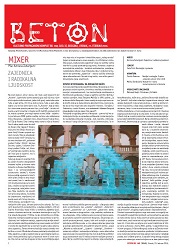
MIXER, Adriana Zaharijević: Zajednica i radikalna ljudskost; CEMENT, Saša Ćirić: Nostalgija i groteska; ARMATURA, Danilo Šarenac: Nasilje i analogije. Srpsko-albanski odnosi 1912-1918, Melita Ranđelović: Nastavnik i rodna neravnopravnost u školama; VREME SMRTI I RAZONODE, Mehmed Begić: Chinatown / Arhitekt
More...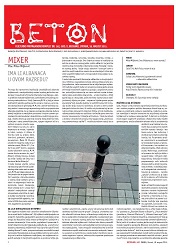
MIXER, Milan Miljković: Ima li Albanaca u ovom razredu?; CEMENT, Saša Ćirić: Adio Pula, vraćam ti se ja; ARMATURA, Esilda Luku: Albansko-jugoslovenski odnosi u albanskim udžbenicima; VREME SMRTI I RAZONODE, Siniša Tucić: Zajedničko kuvalo, Vojo Šindolić: Pjesma za moj 60-ti rođendan; BLOK BR. V, Diskoteka 3D: Suza moja nema roditelja
More...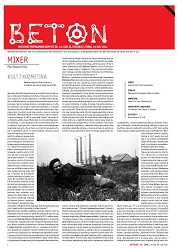
MIXER, Roland Orčik: Kult i kozmetika; ŠTRAFTA, Aleksandar Novaković: Slike sa izložbe; ARMATURA, Saša Ćirić: San o džamahiriji; VREME SMRTI I RAZONODE, Elis Bektaš: Došo šejtan u Sarajvo; BLOK BR. V, Kosmoplovci: SF Graf
More...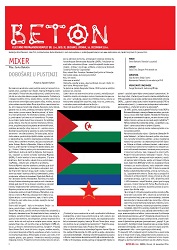
MIXER, Jerko Bakotin: Dobošari u pustinji; CEMENT, Saša Ćirić: Zbogom Prvi svetski rat; ARMATURA, Ilija Đurović: Ovdje i tamo, Aleksandar Pavlović: Ko ne rađa ta je PHD; VREME SMRTI I RAZONODE, Sergej Stanković: Jednonogi Miloje
More...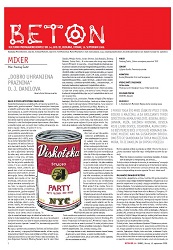
MIXER, Predrag Čudić: „Dobro uhranjena praznina“ DJD; CEMENT, Ljiljana Đurđić: Prevrtanje utrobe; ARMATURA, Andrej Nikolaidis: Krst nad Sarajevom; VREME SMRTI I RAZONODE, lirika utoke, Predrag Lucić: Dvadeset i kusur milja ispod stola; BULEVAR ZVEZDA, ĐURETIĆ, Veselin; BLOK BR. V, L. Bodroža & T. Marković: Najava karte srpskog spasa
More...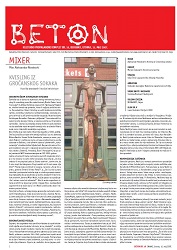
MIXER, Aleksandar Novaković: Kvisling iz Gročanskog sokaka; CEMENT, Marjan Čakarević: Skromnost praznine; ŠTRAFTA, Saša Ćirić: Logocentričko čišćenje filozofije; ARMATURA, Slobodan Georgijev: Nadzirana nezavisnost za Srbiju; VREME SMRTI I RAZONODE, Tomislav Marković: Nedićgrami; BULEVAR ZVEZDA, MEDAKOVIĆ, Dejan; BLOK BR. V, Lazar Bodroža: Patrijarh 3000
More...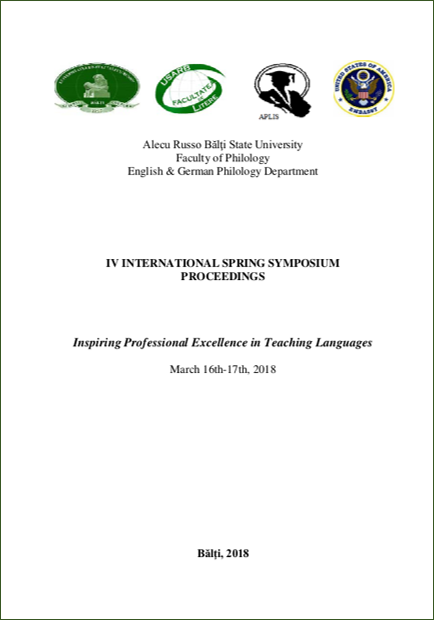
Rhetorics of Letters written to Ceausescu by Dorin Tudoran Letters written to Ceausescu by Dorin Tudoran represent a way to express the negative attitude towards the totalitarian communist system in Romania. The structure of the letters reveals the author’s unique style. The detected style is an argumentative one, where the logical open argument is always announced. The author uses the sentence to communicate with the reader. Thus, the sentence, in the greatest number of cases, is simple, although the inversion can often be observed too. The composite sentence is distinguished by its complexity. Still, the subordinate clauses are more often used than the coordinate ones. The letters are written in a combined style (administrative official style and the belletristic one) which generates an easy, expressive, and coherent exposure.
More...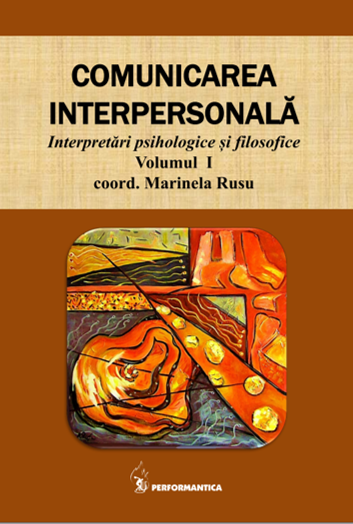
Considering as premise the playwriting of William Shakespeare being one of the touchstones of humanities, in this study we will rise the question about the method through which the work of the classic writer became a way of the contemporary society to reflect some of its most polemized, keen, difficult or challenging topics. Going on, a necessary answer will be given regarding the fact that the plays of the English author get today rather the utilitarian aspect in the scenic approach or if, in fact, there are more nuanced positioning. And there are, as we can not put aside the way that artists are often perceiving the message in a whole, not only on the edge of social, documentary or politic theatre. Therefore, what is it transmitted to us and what do we transmit to history when Shakespearean plays are staged in refuges camps or when debating the veteran’s status. In our approach we will focus on some main artistic directions or forum theatre examples: Love’s Labour’s Lost directed by Corinne Jabel at Kaboul in 2005, the Hamlet Globe Théâtre's production directed on refuges camp in Calais, in 2016, and also Macbeth directed by Peter Callender or the one directed by Amy Attaway from 2019, both talking about the veteran’s or vulnerable groups status. But we believe that each of those visions are simply emphasizing the idea that the great literature fights for fundamental humanist and moral principles.
More...